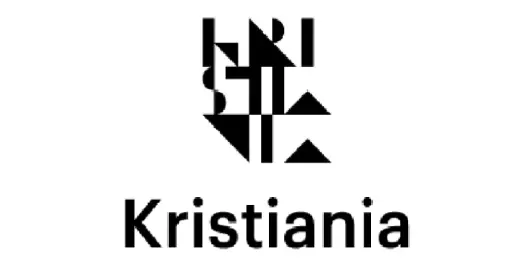Ledig stilling på Universitetet i Oslo
Blindern og Urbygningen (Foto: Wikimedia og Colourbox)
PhD Research Fellowship in Permafrost Modeling
Deadline 07.04.2019
Job description
Universitetet i Oslo
The University of Oslo is Norway’s oldest and highest rated institution of research and education with 28 000 students and 7000 employees. Its broad range of academic disciplines and internationally esteemed research communities make UiO an important contributor to society.
The geosciences are the studies of planet Earth; the atmosphere, the hydrosphere and cryosphere, the earth's surface and it’s interior. The Department of Geosciences is Norway’s widest ranging academic geoscience research environment, encompassing four sections (Meteorology and Oceanography, Geography and Hydrology, Geology and Geophysics, Physics of Geological Processes) and one Centre of Excellence (Centre of Earth Evolution and Dynamics). In addition we participate in other centres and hold several ERC grants. The staff consists of 40 professors and associate professors, in addition to postdoctoral fellows, PhD students, researchers, technical staff and administrative personnel, to a total number of 240.
A PhD Research Fellowship in Atmospheric/climate science is available at Department of Geosciences at The Faculty of Mathematics and Natural Sciences, University of Oslo, Norway (http://www.geo.uio.no).
No one can be appointed for more than one PhD Research Fellowship period at the University of Oslo. Starting date no later than 01.10.2019.
The fellowship period is up to 4 years, with 3 years devoted to research education. The position entails a compulsory work load of 25% that may consist of teaching, supervision duties, and research assistance.
The candidate will become part of a research group with currently six PostDocs and PhD students led by Sebastian Westermann (www.mn.uio.no/geo/english/people/aca/geohyd/sebaswe/). Permafrost is one of the key topics, with strong focus on process modeling, remote sensing methods and field measurements. Current projects include Permanor (www.mn.uio.no/geo/english/research/projects/permanor/), Nunataryuk (nunataryuk.org) and CCI Permafrost (cci.esa.int/Permafrost). A common approach of all projects is to tightly integrate field observations in model development, and the candidate is expected to participate in field activities of the group. From Oslo, we can quickly access field sites in Svalbard and Northern Scandinavia (e.g. degrading peat plateaus), but we are also active in other permafrost regions.
More about the position
Many permafrost landscapes are characterized by a strong spatial heterogeneity, caused by spatially variable freeze-thaw processes and distribution of ice in the ground. Lateral fluxes of snow, water and heat define the thermal regime and stability, but also lead to thresholds and feedback mechanisms that can both delay or speed up permafrost thawing. The CryoGrid model (github.com/CryoGrid) can simulate such thaw phenomena (e.g. www.the-cryosphere-discuss.net/tc-2018-211), and the PhD candidate will extend the capacity of the model, working closely with the international team of developers. The targeted processes are especially related to the accumulation and ablation of ground ice (ice wedges, segregation ice, buried glacial ice) and organic matter, and thus the representation of mass fluxes on different timescales is a main priority for model development.
Application studies in both lowland and mountain permafrost areas are possible. Furthermore, the candidate will interact with developers of the Norwegian Earth System Model (NorESM) to contribute to improvements of permafrost process representation. The final direction of the PhD will be determined together with the candidate, taking her/his scientific background and research preferences into account. Excellence and independent scientific thinking will be the main selection criteria. Scientific publications in international journals are expected as part of the PhD thesis.
Qualification requirements
The Faculty of Mathematics and Natural Sciences is a leading research faculty. Candidates for these fellowships will be selected in accordance with this, and expected to be in the upper segment of their class with respect to academic credentials.
- Master’s degree or equivalent in
Geosciences, Biology, Physics, Mathematics, Computer Sciences, or similar master programs, with a strong background in numerical modeling. Previous experience with permafrost modeling is not a prerequisite to apply, but experience with one or several of the following topics is beneficial in this case:
1. ice mechanics or glacier dynamics modeling,
2. biogeochemistry modeling,
3. hydrological or snow process modeling.
- Foreign completed degree (M.Sc.-level) corresponding to a minimum of four years in the Norwegian educational system
- Candidates without a Master’s degree have until 30 June, 2019 to complete the final exam
The successful candidate must further demonstrate:
- Excellent understanding of numerical models and proven programming skills in MATLAB, Python, C, julia and/or FORTRAN.
- Evidence of creativity and capability of independent research.
- Ability and willingness to participate in field work.
Due to teaching duties, knowledge in one of the Scandinavian languages (Norwegian, Swedish, Danish), is an advantage, but not a requirement.
Grade requirements:
The norm is as follows:
- the average grade point for courses included in the Bachelor’s degree must be C or better in the Norwegian educational system
- the average grade point for courses included in the Master’s degree must be B or better in the Norwegian educational system
- the Master’s thesis must have the grade B or better in the Norwegian educational system
- fluent oral and written communication skills in English evt. and a Scandinavian language
http://www.mn.uio.no/english/research/phd/application/application.html
We offer
- Salary NOK 449 400 – 505 800 per annum depending on qualifications and seniority as PhD Research Fellow (position code 1017).
- Attractive welfare benefits and a generous pension agreement
- Vibrant international academic environment
- Oslo’s family-friendly surroundings with their rich opportunities for culture and outdoor activities
How to apply
The application must include
- Cover letter - statement of motivation and research interests
- CV (summarizing education, positions and academic work - scientific publications)
- Copies of the original Master’s degree diploma, transcripts of records and letters of recommendation
- Documentation of English proficiency
- List of publications and academic work that the applicant wishes to be considered by the evaluation committee
- Names and contact details of 2-3 references (name, relation to candidate, e-mail and telephone number)
The application with attachments must be delivered in our electronic recruiting system, please follow the link “Apply for this job”. Foreign applicants are advised to attach an explanation of their University's grading system. Please note that all documents should be in English (or a Scandinavian language).
Applicants may be called in for an interview.
Formal regulations
Please see the guidelines and regulations for appointments to Research Fellowships at the University of Oslo.
The purpose of the fellowship is research training leading to the successful completion of a PhD degree.
The fellowship requires admission to the PhD programme at the Faculty of Mathematics and Natural Sciences. The application to the PhD programme must be submitted to the department no later than two months after taking up the position. For more information see:
https://www.mn.uio.no/english/research/phd/
According to the Norwegian Freedom and Information Act (Offentleglova) information about the applicant may be included in the public applicant list, also in cases where the applicant has requested non-disclosure.
The University of Oslo has an agreement for all employees, aiming to secure rights to research results etc.
The University of Oslo aims to achieve a balanced gender composition in the workforce and to recruit people with ethnic minority backgrounds.
Contact information
For further information please contact: Sebastian Westermann, phone: +47 228 55931,e-mail: sebastian.westermann@geo.uio.no,
For technical question regarding the recruitment system, please contact HR Officer; Ørjan Pretorius, orjan.pretorius@mn.uio.no
Apply for this job













